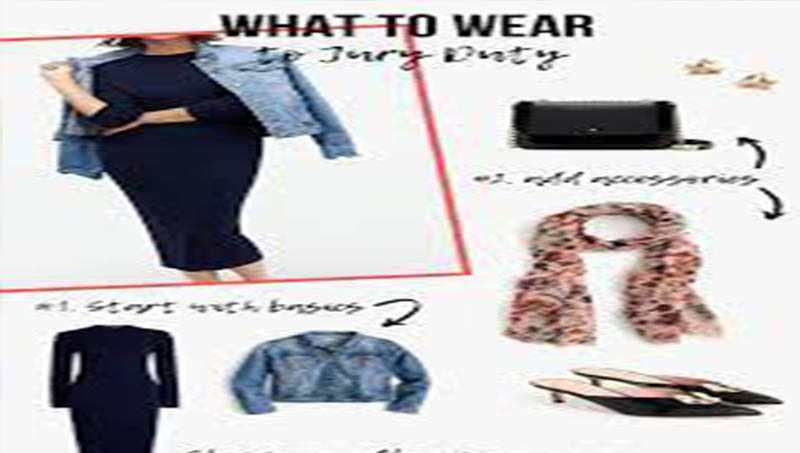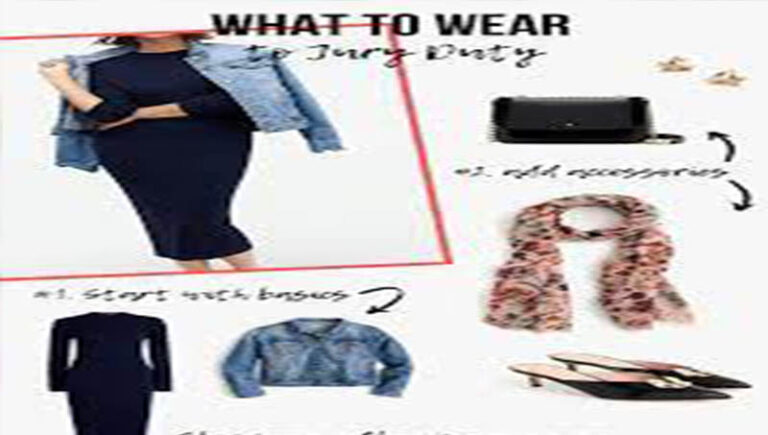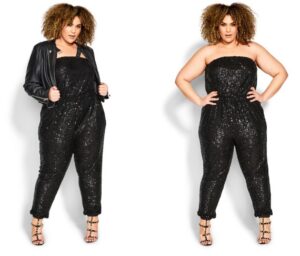Understanding the Importance of Jury Duty
Jury duty is a civic responsibility that helps ensure the fair and just functioning of the legal system. It’s a duty that citizens are called upon to perform to maintain the principles of justice. However, when it comes to jury duty, one of the most common questions that arise is, “What should I wear?” This question often leads to confusion and uncertainty about the appropriate attire for the courtroom.

The Confusion Surrounding Dress Codes
The confusion surrounding jury duty dress codes is understandable, as there is no one-size-fits-all answer. The dress code for jury duty can vary depending on your location, local regulations, and even personal interpretations. In this article, we will explore the different aspects of the jury duty dress code, helping you navigate this dilemma with confidence.
What Is the Jury Duty Dress Code?
Dress codes for jury duty often revolve around the idea of showing respect for the courtroom and the legal process. Common guidelines include dressing in a manner that is neat, clean, and appropriate for a formal setting. While specific dress codes can vary, they usually require clothing that is not too casual, revealing, or distracting.
Varying Dress Code Policies by Location
One important thing to note is that dress code policies can differ by location. What is considered appropriate attire in one courthouse may not be the same in another. Therefore, it’s crucial to familiarize yourself with the specific dress code requirements of your local courthouse. This information can often be found on the official website of the courthouse or through direct communication with court personnel.
The Traditional Approach: Dressing for Formality
Traditionally, many jurors have chosen to dress formally for their jury duty service. The belief is that dressing in a more formal manner conveys respect for the legal system and the serious nature of the proceedings. This approach typically includes wearing business attire, such as suits, dresses, and collared shirts.
The Pros and Cons of Dressing Traditionally
While dressing formally can be a safe choice, it may not always be the most comfortable one. Some jurors may find it cumbersome to spend long hours in formal attire, especially if they are not accustomed to it. Moreover, overly formal clothing may create a sense of unease among jurors, as it can feel out of place in a more relaxed, modern society.
The Modern Perspective: Embracing Comfort and Casual Attire
In recent years, there has been a shift toward a more relaxed approach to jury duty attire. Many jurisdictions are becoming more lenient about what jurors can wear, acknowledging the need for comfort during what can be lengthy and sometimes emotionally challenging proceedings.
Arguments for a More Relaxed Dress Code
Proponents of a more relaxed dress code argue that it allows jurors to feel more at ease, potentially improving their ability to focus on the case at hand. Comfortable attire, such as jeans and casual shirts, can also make jury service more accessible to a wider range of individuals who may not own or feel comfortable in formal wear.
The Role of Local Regulations
Local regulations play a significant role in determining what you can wear to jury duty. Some jurisdictions may have strict dress codes that require formal attire, while others may be more permissive, allowing jeans and casual clothing. It’s essential to research the specific regulations for your location to avoid any issues on the day of your jury service.
Researching Dress Code Requirements in Your Area
To ensure that you are dressed appropriately for jury duty, take the time to research the dress code requirements in your area. Check the official website of your local courthouse or contact the jury services office for guidance. This simple step can save you from any potential dress code-related issues on the day of your service.
The Importance of Respect and Neutrality
Whether you choose a more traditional or casual attire for jury duty, it’s essential to understand the significance of your appearance in the courtroom. Your appearance can influence how you are perceived by others, including the judge, lawyers, and fellow jurors. It’s crucial to convey respect for the legal process and to maintain an air of neutrality.
Avoiding Potential Bias and Prejudice
The way you dress can inadvertently signal bias or prejudice, which can be detrimental to the fairness of the trial. For example, wearing clothing with strong political statements or symbols could create an impression of bias, potentially leading to your dismissal from the jury pool. Therefore, it’s essential to choose clothing that is neutral and avoids controversial messages.
Dressing Smartly and Comfortably
To strike a balance between comfort and convention, consider a “smart casual” approach to your jury duty attire. Smart casual attire is a blend of comfortable and neat clothing that typically includes items like slacks, blouses, button-down shirts, and well-fitted jeans. This style allows you to look presentable while feeling at ease during your service.
Tips for Choosing Your Jury Duty Outfit
- Opt for clean and wrinkle-free clothing.
- Choose neutral or subdued colors to maintain a professional appearance.
- Avoid clothing with holes, stains, or excessive wear.
- Select comfortable footwear, as you may be on your feet or sitting for extended periods.
What Not to Wear to Jury Duty
While there is no strict dress code for jury duty, there are certain types of clothing you should definitely avoid. Here are some examples of inappropriate clothing choices:
- Beachwear or swimwear
- Revealing or provocative clothing
- Clothing with offensive or explicit messages
- Pajamas or overly casual attire
- Clothing with logos or branding that could be construed as biased
Why Certain Attire Is Discouraged
Inappropriate attire can distract from the proceedings, undermine the seriousness of the court, and potentially create an unfavorable impression among those involved in the case. It’s best to err on the side of caution and choose clothing that respects the courtroom environment.
Special Cases: Jury Duty and Personal Style
It’s important to remember that jury duty attire isn’t one-size-fits-all. While there may be general guidelines, your personal style and comfort matter. If you have unique circumstances, such as cultural or religious considerations, don’t hesitate to communicate your needs to the court. They may make accommodations to ensure your comfort and adherence to your personal principles.
Balancing Personal Expression with Court Expectations
Balancing personal expression with court expectations is essential. You can express your individuality through subtle accessories or color choices without compromising the respect and neutrality required in the courtroom. Communication with the court in advance can help you reach a suitable compromise.
Jury Duty Etiquette: Beyond the Dress Code
Dressing appropriately is just one aspect of jury duty etiquette. Punctuality is equally important. Arriving on time demonstrates respect for the court’s schedule and the legal process. It’s advisable to arrive a bit earlier than your reporting time to allow for





